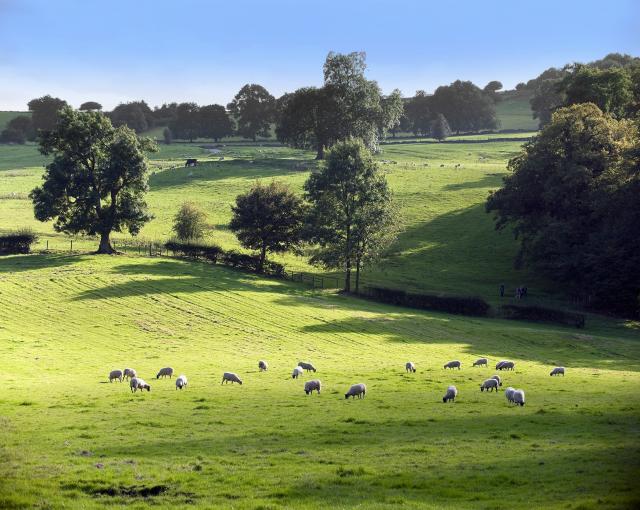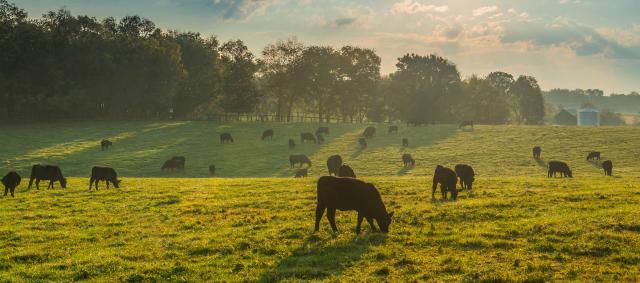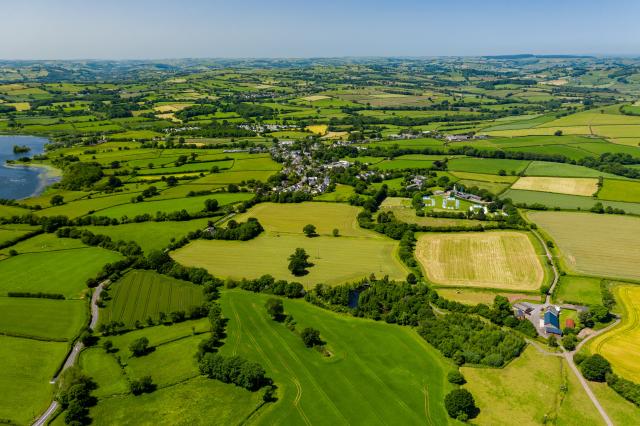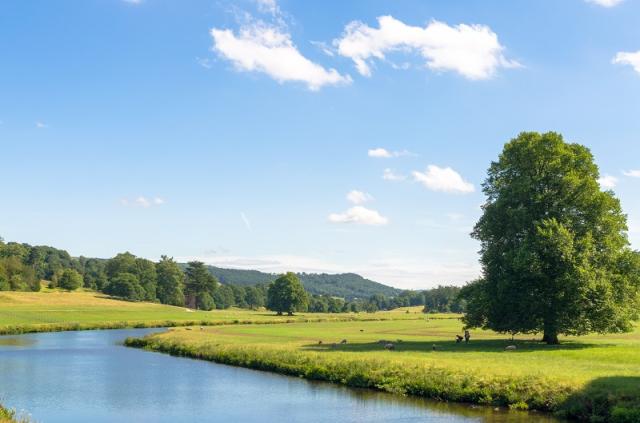Thank you for continuing to subscribe to our monthly newsletter. We hope you find the content useful and we welcome any feedback or suggestions on topics that you would like to see covered in future editions.
FAS technical advice line: 03000 200 301
- Key dates to be aware of…
- How can we help you?
- Defra Webinar: Expanded Sustainable Farming Incentive offer 2024
- Understanding the Sustainable Farming Incentive 2023 annual declaration
- Update on Sustainable Farming Incentive and Defra’s agri-environment schemes
- Catchment Sensitive Farming (CSF): On farm climate strategies and Working with a beef farm example
- Trees on farms: Agroforestry Plan and Eight toothed spruce bark beetle tree pest found on new species for the first time
- Nitrate Vulnerable Zone (NVZ) closed period reminders
- Water Abstraction E-Alerts
- Updates from the Farming blog and industry announcements
- Stay up to date with us
For any land located in a Nitrate Vulnerable Zone (NVZ), this is the start of the closed period for applying organic manure with a high readily available nitrogen content (for example, slurry, poultry manures or liquid digested sewage sludge) to grassland on shallow or sandy soils. GOV.UK
For any land located in an NVZ, this is the start of the closed period for applying manufactured nitrogen fertilisers to tillage land. GOV.UK
For any land located in an NVZ, this is the start of the closed period for applying manufactured nitrogen fertilisers to grassland. GOV.UK
This is the start of closed period for applying organic manure with a high readily available nitrogen content (for example, slurry, poultry manures or liquid digested sewage sludge) to tillage land on shallow or sandy soils except where crops will be sown on or before 15 September. GOV.UK
New rules make it a legal requirement for everyone in Great Britain who keeps birds to register with the Animal and Plant Health Agency (APHA), regardless of the size of their flock, even if the birds are kept as pets. Keepers must register by 1 October 2024. Register as a keeper of less than 50 birds on GOV.UK.
In case you missed them...
The closed period for high Readily Available Nitrogen (RAN) organic manures on tillage land with sandy or shallow soils in Nitrate Vulnerable Zones begins.
- The full guidance on NVZ closed periods can be found here.
Upcoming Grant Deadlines
| 18 September | The eligibility checker for the Laying Hen Housing for Health and Welfare grant (round 1) will close at midnight (11:59) on 18 September 2024. |
| 30 September | The deadline for invited applicants to submit your slurry store location and design assessment form for the Slurry Infrastructure grant round 2 is midnight (11:59) on 30 September 2024. |
From 3 January the following grants opened for application
• Capital Grants 2024
• Higher Tier Capital Grants 2024
• Protection and Infrastructure Grants 2024
• Woodland Management Plan (WMP) Grants 2024
• Woodland Tree Health (WTH) Grants
• Implementation Plan Grant (PA1) or Feasibility Study Grant (PA2)
Key Dates for Annual Declaration Submission
To assist SFI agreement holders, the RPA have outlined the opening and closing dates for the annual declaration submission based on the start date of the agreement:
| Agreement start date | Declaration period opens | Declaration period closes |
|---|---|---|
| 1 October 2023 | 1 August 2024 | 30 September 2024 |
| 1 November 2023 | 1 September 2024 | 31 October 2024 |
| 1 December 2023 | 1 October 2024 | 30 November 2024 |
| 1 January 2024 | 1 November 2024 | 31 December 2024 |
| 1 February 2024 | 1 December 2024 | 31 January 2025 |
| 1 March 2024 | 1 January 2025 | 28 February 2025 |
| 1 April 2024 | 1 February 2025 | 31 March 2025 |
| 1 May 2024 | 1 March 2025 | 30 April 2025 |
| 1 June 2024 | 1 April 2025 | 31 May 2025 |
| 1 July 2024 | 1 May 2025 | 30 June 2025 |
| 1 August 2024 | 1 June 2025 | 31 July 2025 |
| 1 September 2024 | 1 July 2025 | 31 August 2025 |

Free and confidential advice
The FAS is funded by the Department for Environment, Food and Rural Affairs (Defra). We provide free, confidential advice to help farmers and land managers in England understand and meet the legal requirements in English law around certain farming activities to protect people, livestock and the environment. We update the farming sector on relevant government farming policy that is applicable in England and on the actions that can be taken to help farmers comply with the relevant regulations. Our newsletter also provides articles on topics that are complementary to Farming Regulation, such as practices that benefit the wider environment and wellbeing support.
Our website hosts our previous newsletters, as well as technical articles and webinars that cover various topics in more detail.
Contacting the advice line
Farmers requiring telephone advice can contact the FAS technical advice line on 03000 200 301, Monday to Friday, between 08:30 and 17:00. The Rural Services Helpline provides a single number for all FAS, Rural Payments Agency (RPA), Animal and Plant Health Agency, Natural England and forestry enquiries.
You can also email enquiries to advice@farmingadviceservice.org.uk. Our helpline team aims to respond to all telephone and email enquiries within one working day.
The advice given to individual farmers is confidential – we do not disclose any personal or individual information or data obtained during advisory activities.
You can also now speak to our Helpline team through the new online chat function on the farmingadviceservice.org.uk website.
Defra Webinar: Expanded Sustainable Farming Incentive offer 2024
On Thursday 26 September, Defra will be holding a webinar for farmers to discuss the guidance, actions, and details of the expanded Sustainable Farming Incentive (SFI) offer.
Topics will cover endorsed actions and updates to terms and conditions. Janet Hughes, Farming and Countryside Programme Director, will be joined by policy leads working on SFI and colleagues from the Rural Payments Agency and Catchment Sensitive Farming.
This webinar will be delivered in collaboration with the Farming Advice Service (FAS) and The Farming Forum (TFF).
To attend the online session, follow the Zoom link and reserve a place. It’s free, and once registered, you can ask or upvote questions on Slido before and during the webinar.
The webinar lasts 1.5 hours and starts at 2pm. If you can’t attend, don’t worry. The webinar will be recorded, and the video will be added to the Defra blog and the webinars in 2024 page after it ends.
To prepare, you can read the recent Defra blog post on the expanded offer. It includes a link to the ‘Find funding for land or farms’ tool, which will give you an idea of the actions you could include in your SFI agreement.
As the year progresses, the Rural Payments Agency is reminding Sustainable Farming Incentive (SFI) agreement holders about the need to submit an annual declaration.
What is the annual declaration?
The annual declaration is how SFI agreement holders confirm that they have delivered against their agreement for that year. It is an important part of receiving the final payment for the agreement year. Section 5.2.4 of the Sustainable Farming Incentive (SFI) Handbook for the SFI 2023 offer covers information on the annual declaration.
Submission timeline and steps
Each SFI agreement spans three years, with agreement holders required to submit an annual declaration during the last two months of each relevant agreement year. The timing for the declaration depends on the start date of your SFI agreement, and the RPA will notify agreement holders when the submission period opens.
Here is a summary of the steps for submission:
1. Notification: The RPA will inform you when the annual declaration period begins.
2. Access the declaration form:
-- Sign in to the Rural Payments service.
-- Click on the ‘Business overview’ section.
-- Select ‘SFI applications and agreements’.
3. Complete the declaration:
-- Click on the ‘Annual Declaration’ button.
-- On the screen asking, ‘Are you in a position to submit your annual declaration?’, select ‘Yes’.
-- Review and submit your declaration.
Importance of timely submission
It is important to submit your annual declaration online via the Rural Payments service and within the designated period to receive the final quarterly instalment of your annual payment.
Key dates for annual declaration submission
To assist SFI agreement holders, the RPA has outlined the annual declaration
submission opening and closing dates based on the start date of the agreement:
| Agreement start date | Declaration period opens | Declaration period closes |
|---|---|---|
| 1 October 2023 | 1 August 2024 | 30 September 2024 |
| 1 November 2023 | 1 September 2024 | 31 October 2024 |
| 1 December 2023 | 1 October 2024 | 30 November 2024 |
| 1 January 2024 | 1 November 2024 | 31 December 2024 |
| 1 February 2024 | 1 December 2024 | 31 January 2025 |
| 1 March 2024 | 1 January 2025 | 28 February 2025 |
| 1 April 2024 | 1 February 2025 | 31 March 2025 |
| 1 May 2024 | 1 March 2025 | 30 April 2025 |
| 1 June 2024 | 1 April 2025 | 31 May 2025 |
| 1 July 2024 | 1 May 2025 | 30 June 2025 |
| 1 August 2024 | 1 June 2025 | 31 July 2025 |
| 1 September 2024 | 1 July 2025 | 31 August 2025 |
The RPA is encouraging all SFI agreement holders to mark the relevant dates in their calendars and complete their declarations promptly to avoid any disruptions to payments.
For assistance or questions regarding the annual declaration process, please contact the Rural Payments service.
The first Sustainable Farming Incentive (SFI) agreements for 2024 are now live as Defra continues the controlled rollout of the scheme.
Farmers who want to apply can continue to contact the Rural Payments Agency to express their interest.
Commenting on this, Farming Minister, Daniel Zeichner said:
“This Government recognises that food security is national security. We said we would provide stability for farmers, and we are delivering on this commitment by confirming that the first Sustainable Farming Incentive agreements are now live.
This is the first step to increase farmer confidence, as part of our new deal for farmers, to boost Britain’s food security, restore nature and support rural economic growth. We will optimise Environmental Land Management schemes so they produce the right outcomes for all farmers - including those who have been too often ignored, such as small, grassland, upland and tenanted farms.
We will protect farmers from being undercut in trade deals, make the supply chain work more fairly, prevent shock rises in bills by switching on GB Energy and use the government’s purchasing power to back British produce.”
On 5 August, Defra published updated SFI scheme information and guidance to help farmers and land managers carry out actions in agreements.
The expanded SFI offer initially comprises 102 actions, designed in collaboration with the agricultural sector, including over 20 new options to support more sustainable food production – with payments for agroforestry, precision farming, a new and expanded offer for upland farmers and more actions for tenants on short-term contracts. One of the latest posts to the Defra Farming Blog looks at some of the recent changes it has made to the action wording.
New to SFI, endorsed actions target certain priority habitats, species or heritage features, and require approval from Natural England or Historic England. ‘GRH6: Manage priority habitats species-rich grassland’, the first endorsed action, is now on GOV.UK and available to include in your application. Find out more about endorsed actions in this post on the Defra Farming blog.
Voluntary advice has been published for each SFI action, which offers information and examples on how you might choose to do the action. You can find the advice under each action on the ‘Find funding for land or farms’ page.
Defra has also added new capital items to the existing capital offer. Farmers can now apply for funding to support buying trees for an in-field agroforestry system, or to create a moorland mapping plan to help manage environmental features on moorland. More information on capital items can be found in a recent post on the Defra Farming blog

New agroforestry capital items
- PA4 - completing an Agroforestry Plan to support you to plan, create and manage your agroforestry system (£1,268.08 per plan)
- AF1 - planting an agroforestry woodland tree (£5.40 per tree)
- AF2 - planting an agroforestry fruit tree (£17.83 per tree)
- AF3 - supplement to create more diverse mixtures in agroforestry systems (£1.16 per tree)
Information on all capital items above can be found on the Countryside Stewardship Grant Finder tool.
Previously announced agroforestry revenue rates
- AGF1 - annual revenue payment towards maintaining very low density in-field agroforestry on less sensitive land, between 30 and 50 trees per hectare and is paid at £248/ha for 3 years
- AGF2 - annual revenue payment towards maintaining low density in-field agroforestry on less sensitive land, between 51 and 130 trees per hectare and is paid at £385/ha for 3 years
You can find more information on the two revenue payments in the Find funding for land or farms digital tool.
The next steps for other Environmental Land Management schemes will be confirmed in due course.
Defra has reported that record numbers of Agri-environment agreements, including SFI, are now in place. As of 16 July, there were over 65,400 live agreements. Previously, the largest number of live agreements was 59,200 in 2010.
On farm climate strategies
Andy Bason of Newhouse Farm in Hampshire set out to make his farm business more resilient to climate change. Working with LEAF (Linking Environment and Farming) and his local advisers from CSF and the Forestry Commission, he outlines his key strategies:
- Soil Organic Matter - Building soil organic matter stores carbon, improves soil health and its ability to hold water, increasing resilience to both droughts and floods.
- Nutrient Management - Using nutrients as efficiently as possible can increase yield and reduce greenhouse gas emissions.
- Cover Crops - Keep valuable nutrients, such as nitrogen and phosphorus, in the soil for the next crop and to improve soil health.
- Trees - Planting trees on a farm, as woodland or agroforestry, can help store carbon, reduce flood risk, and provide shelter for livestock in extreme heat.
For more information about Newhouse Farm’s work with LEAF, please visit here.
Find out more about the advice (including farm climate strategies) provided by CSF on GOV.UK. CSF is led by Natural England in partnership with Defra, the Environment Agency, and the Forestry Commission. It works with farmers, communities and organisations across England to improve the quality of water, air and soils, and to reduce flood risk. For help with woodland creation you can contact the Forestry Commission’s woodland creation team.
How an Oxfordshire beef farm made improvements by working with Defra and CSF

Great Holcombe Farm is a specialist beef finishing and rearing unit in Wallingford, Oxfordshire. The farm operates a series of covered, loose housing barns, bedded on straw, with a total mixed ration fed through feed barriers. Following a Farming Resilience Fund (FRF) visit, it was highlighted that slurry was being created in open yard areas, which risked polluting nearby water.
The Defra-funded FRF provides business support to help farms adapt to the agricultural transition. In this instance, the FRF adviser was able to discuss future goals and work out what changes were required and when. This included connecting the farm with Catchment Sensitive Farming (CSF) for help to achieve the aims of the FRF visit.The CSF adviser worked with the farm to identify yard management changes, as well as infrastructure investments, which could help to reduce slurry volumes and manage water across yard surfaces. CSF signposted the farm to the Slurry Infrastructure Grant, which provides funding for upgrading slurry storage, and commissioned nutrient planning advice and slurry sampling to guide using this valuable nutrient source.
Results – delivering business benefits and protecting the environment
The investments included roofing a cattle handling area, new gutters and downpipes, and replacing concrete, which aim to improve water and nutrient management and help with timing of slurry application.
By working with regulators, commercial advisors and CSF, the farm was able to balance the risks and opportunities for its business. This meant it could make decisions about future investment and secure funding from Capital Grants, the SFI, and the Slurry Infrastructure Grant.
Trees on farm: Agroforestry Plan & Eight Toothed Spruce Bark Beetle (Ips typographus) found on new species
New agroforestry capital items – an Agroforestry Plan
With the Defra announcement on 5 August, the Forestry Commission has provided further detail on the new capital item PA4 Agroforestry Plan.
Agroforestry is the integration of trees into the farming system, while maintaining or enhancing a farm’s main agricultural output. Through the expanded SFI offer, farmers and land managers can access funding to support capital items – including a funded Agroforestry Plan.
Agroforestry Plans (PA4 capital item) are designed to:
- support you in planning, creating, and the ongoing management of your agroforestry system;
- take a holistic view to consider how your agroforestry fits within the context of your landholding and local landscape;
- outline how agroforestry supports your business objectives and provides environmental benefits that can boost your farm business resilience;
- help you to think about the full range of agroforestry options for your land holding in a holistic way, which can then inform your funding options to create or manage your agroforestry;
- provide a structured approach to gain any permissions you may need to progress your ideas.
The Forestry Commission encourages anyone who is considering an agroforestry system to complete an Agroforestry Plan.
Further information on Agroforestry Plans can be found on GOV.UK
Advice and support for agroforestry
To read more about agroforestry, please visit the Forestry Commission’s gov.uk page or their latest blog.
If you would like to discuss agroforestry with the Forestry Commission,including whether your land is eligible for SFI agroforestry, please contact: GRNationalTeam@forestrycommission.gov.uk
To help your email reach the relevant Agroforestry Woodland Officer for your area, please title your email: Agroforestry: county name, followed by your postcode.

The Eight Toothed Spruce Bark Beetle (Ips typographus) tree pest found on new species for the first time
Do you manage any woodlands on your farm? If so, there is a need to remain watchful and check your woodland as Ips typographus has been found on Sitka spruce trees in the UK for the first time.
Ips typographus has been found on a small number of cut and fallen Sitka spruce trees near infested Norway spruce trees on a site in West Sussex. This marks the first time the beetle has been discovered on this species. There is no evidence of spread within the UK and the recent outbreaks are most likely due to natural dispersal of the pest from mainland Europe.
Ips typographus is a serious pest of spruce trees in Europe, which was first identified in the UK in 2018. It prefers stressed or dying trees but under the right conditions it can attack healthy trees and has the potential to cause significant damage to Great Britain’s forestry and timber industries.
A press release with further information can be found here.

In this article, FAS provides reminders on the closed periods for spreading organic manure and manufactured fertiliser in an NVZ.
There are established closed periods for NVZs that apply to certain types of organic manure (those with more than 30% readily available nitrogen, such as poultry manure and liquid organic manure) and manufactured fertilisers. If any of your land is located within an NVZ, you must not spread during the dates shown in Table 1 and Table 2 (all dates are inclusive).
There are some exceptions to the rules for the closed periods. For more information, please visit GOV.UK.
Please remember that regardless of the NVZ closed periods, the Farming Rules for Water require all farmers (whether they have land located in an NVZ or not) to plan applications of organic manures or manufactured fertilisers. This is so that applications do not exceed the needs of the soil or crop, or give rise to a significant risk of diffuse pollution.
If you have any questions or require further support, please contact the FAS helpline (03000 200 301) or email advice@farmingadviceservice.org.uk
Table 1: Closed periods for organic manure
| Grassland | Tillage land | |
|---|---|---|
| Sandy or shallow soils | 1 September to 31 December | 1 August to 31 December |
| All other soils | 15 October to 31 January | 1 October to 31 January |
Table 2: Closed periods for manufactured fertiliser
| Grassland | Tillage land |
|---|---|
| 15 September to 15 January | 1 September to 15 January |
August has been a generally hot and dry month. Some abstraction licences with ‘Hands-off Flow’ conditions have been notified to stop or reduce abstraction due to low flows. This typically happens every summer as hands-off flow conditions are triggered in response to drier periods of weather.
The Water Abstraction e-Alerts (WAA) system, part of the Water Resource Licensing Service (WRLS), developed by the Environment Agency (EA), was created to help protect the environment by ensuring email notices are promptly received by licence holders to stop or reduce abstraction. The WAA notification system also helps businesses by making sure abstractors can swiftly recommence their abstraction activity once water levels/flows improve by sending notices to lift these conditions. The WAA notification system is now available in all EA Areas across the country. Over 88% of agricultural abstraction licences with a Hands-off Flow condition nationally have registered for WRLS, with some Areas achieving 100% registrations, including Greater Manchester, Merseyside and Cheshire, Hertfordshire and North London.

Registering for WRLS allows licence holders to manage their licences online by providing a summary of their licence, which can be viewed easily anywhere, including in the field. It also enables the submission of water abstraction returns easily and quickly, as well as delegating access to a third party to submit returns. Additionally, the Water Abstraction Alerts system is available to those registered for WRLS, where a Hands-off Flow condition is applied to their licence.
For licence holders not yet registered, please register for WRLS to manage your abstraction licence. If you have any questions or require assistance, please contact WRModernisingRegulation@environment-agency.gov.uk. For those already registered, please do ensure that contact details are up to date on your WRLS account

Defra regularly updates the Farming blog. Please subscribe to the blog to ensure you receive all the latest news.
New poultry and kept bird registration rules: check now if you need to take action
New rules make it a legal requirement for everyone in Great Britain who keeps birds to register with the Animal and Plant Health Agency (APHA), regardless of the size of their flock,even if the birds are kept as pets. Keepers must register before 1 October 2024 in England and Wales and between 1 September and 1 December in Scotland.
These changes will improve the effectiveness of national disease control measures and better protect the poultry sector from future outbreaks of avian disease. This is an important step because since 2021 around a quarter of all confirmed outbreaks have been amongst backyard poultry or small captive bird flocks.
By registering, these keepers will receive important updates on any local disease outbreaks and biosecurity guidance to help protect their flocks. The information on the register will also allow for more effective surveillance work, meaning that disease control zones can be lifted at the earliest opportunity and trade can resume more quickly following an outbreak of avian disease in Great Britain.
These changes will mainly affect backyard flocks but will also require action by farmers and keepers of other livestock who may keep a smaller number of birds for non-commercial reasons. Registering as a keeper of less than 50 birds is quick and simple: start your application here.
It remains a legal requirement to register as a keeper of over 50 or more poultry or other captive birds. You can complete or update this registration here.
There’s still time to apply for a Laying Hen Housing for Health and Welfare Grant
The Laying Hen Housing for Health and Welfare Grant is open to laying hen or pullet farmers with flocks of more than 1,000 birds.
You can get funding for two different types of project:
• £5,000 to £100,000 towards installing a new veranda on an existing building
• £15,000 to £500,000 towards refurbishing or replacing existing laying hen and pullet housing.
Applications close on 18 September at 11:59pm
The application process has two stages. It starts with an online checker, which takes about 35 minutes, to determine your eligibility and whether your project fits the funding priorities. The RPA will then invite successful projects to the second stage to complete a full application.
Bluetongue virus update: first BTV-3 case of 24/25 vector season confirmed
On 26 August, a case of Bluetongue virus (BTV-3) was confirmed by the UK Deputy Chief Veterinary Officer in a single sheep at a premises near Haddiscoe, South Norfolk, the first case detected in the 2024/25 vector season.
A 20km temporary control zone (TCZ) has been put in place around the affected farm which will restrict movements of susceptible animals and their germinal products except under license. Further information on these restrictions can be found here.
Surveillance is underway to determine if the virus is currently circulating in the UK. Given the current temperatures and midge activity, which spread the disease, there is a high risk of onward spread in the UK.
Keepers of cattle, sheep, other ruminants and camelids must remain vigilant, monitor their animals frequently for clinical signs and report any suspicion of disease immediately. They should also make sure their animals and land are registered with APHA so keepers can be kept informed and animals easily located.
Responsible sourcing is crucial and free testing remains available for animals moving from the highest risk counties to live elsewhere in Great Britain or to be sold at a market within a high-risk county where there will be buyers from outside the high-risk counties.
More information about bluetongue is available here.
Support is now available for tackling endemic diseases
The new ‘Get funding to improve animal health and welfare’ is now open for keepers of cattle, pigs and sheep. It incorporates the annual health and welfare review launched in 2023 (now called the animal health and welfare review) and introduces a new endemic disease follow-up visit. Building on the advice and testing conducted in the review visit, the new follow-up visit provides livestock keepers with access to further funding for testing, as well as advice on how to remove disease from their farm and improve biosecurity.
The payment rates for this new endemic disease follow-up visit vary by species:
• £215 for beef cattle with no Bovine Viral Diarrhoea (BVD)
• £837 for beef cattle where BVD is present in the herd
• £639 for sheep
• £923 for pigs
Because the new follow-up visit builds on a review visit, you must have a review first. Follow-up visits must be no more than 10 months after the first review. For more information, please visit GOV.UK.
This support is not yet available to keepers of dairy cattle. Defra has confirmed that updates on the availability will be communicated to dairy farmers in due course.
Stay up to date with us
Get the latest updates by following us on X (formerly Twitter)
Follow us on @DefraFAS for up-to-the-minute updates on publications, events and industry information.
Subscribe to our free monthly newsletter
If you don’t already receive our monthly FAS newsletter, please visit farmingadviceservice.org.uk and enter your email address into the newsletter sign-up box.
Alternatively, please email bookings@farmingadviceservice.org.uk, with ‘Register for newsletter’ in the subject line.
In line with data protection regulations, such as the General Data Protection Regulation (GDPR) and the UK Data Protection Act 2018, the FAS has updated its privacy policy to explain how your data is kept safe. To view the policy, please visit www.farmingadviceservice.org.uk/privacy-policy.